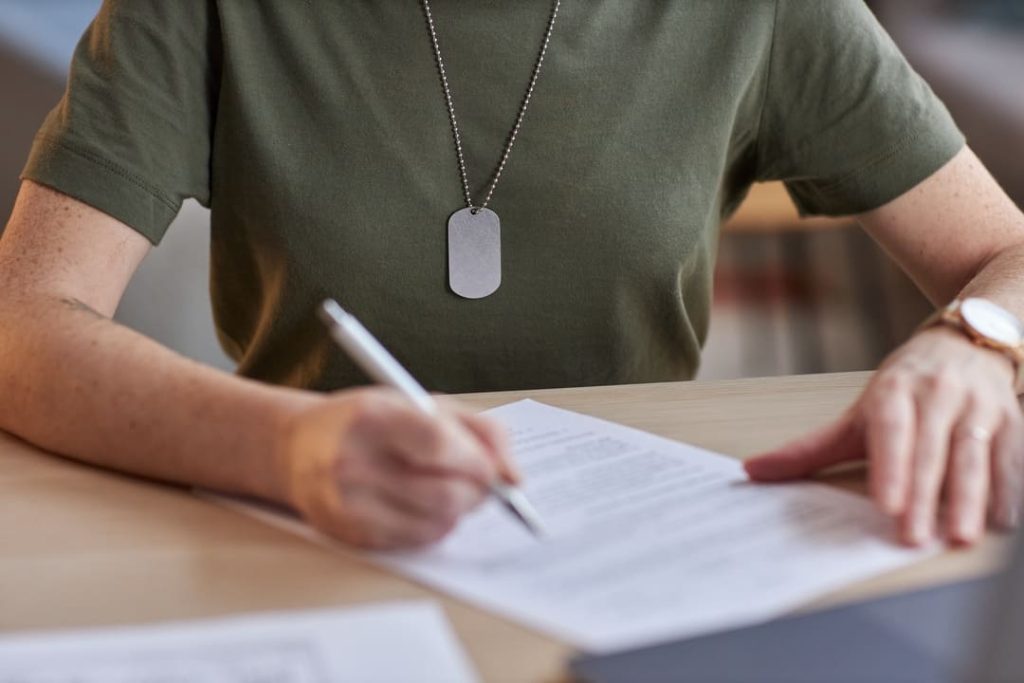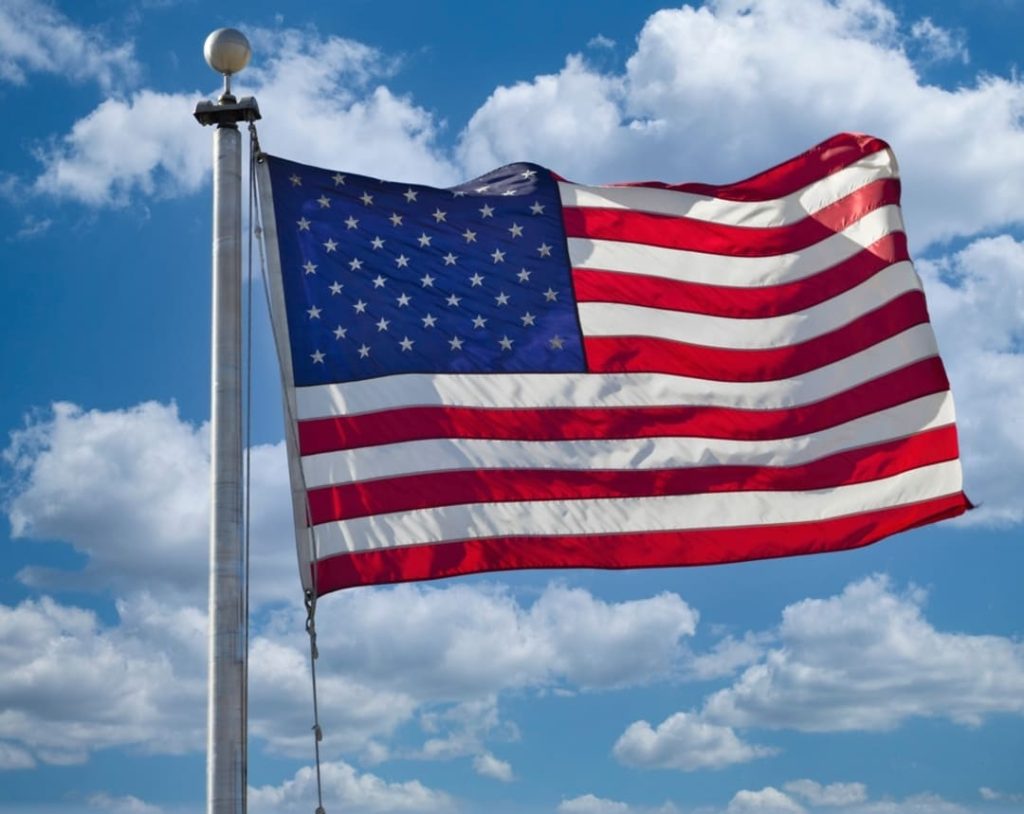Looking for Expert-Level VA Claim Answers?📱Call Us Now! 737-295-2226
In this post, I provide veterans with a real VA lay statement example.
I also explain how to use lay evidence to service connect your VA disability claim, even if you’ve already filed or been denied.
This information is especially important if your service treatment records lack sufficient medical evidence of any in-service disability or condition.
Side note: This is VERY common, veterans!
Why?
Because you often didn’t go to the doctor enough while you served on active duty, and thus, your service treatment records do not contain any evidence of a disability or condition.
I can literally read the VA’s denial letter now: “The veteran’s active duty service treatment records do not contain any medical evidence or subject complaints of the disability or condition.”
Here’s the deal, veterans: You can prove your VA disability claim and overturn previous denials of service connection using something called “lay evidence.”
Let’s take a look.
Table of Contents

You DESERVE a HIGHER VA rating.
Take advantage of a VA Claim Discovery Call with an experienced Team Member. Learn what you’ve been missing so you can FINALLY get the disability rating and compensation you’ve earned for your service.
What is Lay Evidence?
Lay evidence, such as a VA lay statement, simply means “after-the-fact evidence,” and it must be competent and credible.
“Competent lay evidence” means any evidence not requiring that the proponent have specialized education, training, or experience.
Lay evidence, like a buddy lay statement or a spousal statement, is competent and credible if it is provided by a person who has knowledge of facts or circumstances and conveys matters that can be observed and described by a layperson.
Alright, enough legal jargon.
VA Lay Statement Examples
Personal statements, buddy letters, and spousal letters can all be considered VA lay statement examples.
1. A personal statement you write on the VA Form 21-4138 documenting how you think your current non-combat Post Traumatic Stress Disorder is due to an in-service sexual assault and stressor event that occurred 20 years ago IS lay evidence.
2. A Buddy Letter written by someone you served with who can shed some light on how your shoulder separation occurred on active duty IS lay evidence.
3. A sleep apnea lay statement example could be a spousal letter for sleep apnea, which documents what your spouse has witnessed over the years and the approximate dates your spouse noticed your sleep apnea symptoms began in-service IS lay evidence.
4. A current co-worker’s statement in support of a claim describing the severity of your current PTSD symptoms IS lay evidence.
How to Prove VA Service Connection
According to the law, service connection may be granted for a disability resulting from disease or injury incurred in or aggravated by service. See 38 U.S.C.A. § 1110; 38 C.F.R. § 3.303(a).
Service connection may also be granted for any disease diagnosed after discharge when all of the evidence, including that pertinent to service, establishes that the disease was incurred in service. See 38 C.F.R. § 3.303(d).
Service connection requires competent evidence showing: (1) the existence of a present disability; (2) in-service incurrence or aggravation of a disease or injury; and (3) a causal relationship between the present disability and the disease or injury incurred or aggravated during service.
Click to Read Shedden v. Principi, 381 F.3d 1163, 1167 (Fed. Cir. 2004).
Depending on the evidence and contentions of record in a particular case, lay evidence can be competent and sufficient to establish a diagnosis and medical etiology of a condition.
Click to Read Davidson v. Shinseki, 581 F.3d 1313 (Fed. Cir. 2009).
Click to Read Jandreau v. Nicholson, 492 F.3d 1372, 1377 (Fed. Cir. 2007).
Alternatively, service connection may be established under 38 C.F.R. § 3.303(b) by (a) evidence of (i) the existence of a chronic disease in service or during an applicable presumption period under 38 C.F.R. § 3.307 and (ii) present manifestations of the same chronic disease, or (b) when a chronic disease is not present during service, evidence of continuity of symptomatology.
When there is an approximate balance of positive and negative evidence regarding any issue material to the determination of a matter, the Secretary shall give the benefit of the doubt to the claimant. See 38 U.S.C.A. § 5107; 38 C.F.R. § 3.102.
Click to Read Gilbert v. Derwinski, 1 Vet. App. 49, 53 (1990).
Lay persons are competent to provide evidence regarding things they have personally observed, including symptoms that are capable of lay observation and when those symptoms occurred. See 38 C.F.R. § 3.159(a)(2);
Layno v. Brown, 6 Vet. App. 471 (1994).
Can I Use Lay Evidence to Win My VA Claim?
According to M21-1, lay evidence, or a VA lay statement example, is acceptable for the purpose of establishing service incurrence or aggravation in the absence of Service Treatment Records (STRs) for a combat Veteran or FPOW if the evidence:
- Is satisfactory
- Is consistent with the circumstances, conditions, or hardships of combat or FPOW internment, and
- Can prevail in spite of the absence of official records showing incurrence or aggravation of the disease or injury during service.
Important: Medical evidence of a link to a current condition is still needed to establish SC.
Awe, there’s the WHAMMY!
Veterans, this is why I founded VA Claims Insider.
Even though lay evidence can help you prove service connection, you still need competent medical evidence from a credentialed medical professional to help establish service connection.
You need to obtain a Medical Nexus Letter to help you win and service connect your VA disability claim.
*A non-combat veteran’s lay statements may be acceptable for establishing service incurrence or aggravation but must be weighed against other evidence in the claims folder, including the absence of military records documenting or supporting the statements.
References: For more information on
- Considering evidence for combat-related disabilities, see M21-1, Part IV, Subpart ii, 2.B.3.d
- Considering lay evidence, see 38 U.S.C. 1154(a)
- A non-combat Veteran’s statements, Click to Read Bardwell v. Shinseki, (2010), and
- Evaluating service treatment records, see M21-1, Part III, Subpart iv, 5.A.3.h.
Lay evidence is generally afforded probative value if it is provided by a person who has knowledge of facts or circumstances and conveys matters that can be observed and described by a layperson.
The value accorded to other types of lay evidence depends on such factors as
- The accuracy or clarity of the individual’s memory
- Direct personal knowledge or experience
- The recency of the event, and
- The competence of the reporting person.
*A medically untrained individual is not usually competent to offer a medical opinion regarding the etiology of disorders, and such an opinion is generally assigned little probative weight.
References: For more information on
- Using lay evidence to support a claim, Click to Read Espiritu v. Derwinski, (1992), and
- Definition of lay evidence, see 38 CFR 3.159(a)(2).
Can I Write A Personal Statement in Support of My VA Claim?
A veterans’ own statement, covering in sufficient detail a condition that is within his/her ability to describe, such as his/her own symptoms, may, to that extent, constitute credible and competent lay evidence.
Rationale: While such statements have self-serving aspects, the claimant is often the most qualified source to describe the circumstances of the disabling effects of the disease or injury.
Okay, what does all this mean for your VA claim?
It means that the VA MUST consider all lay and medical evidence of record in a case with respect to benefits.
Lay evidence is one type of evidence that must be considered, and that competent lay evidence can be sufficient in and of itself.
Want to see a real VA lay statement example? Click HERE.
The problem, though, is that RVSRs at the VA don’t interpret this properly, and frankly, neither do the courts.
How Do I Obtain a DBQ and a Medical Nexus Opinion?
This is why it’s so important for veterans to obtain DBQs and Medical Nexus Letters.
A credible Medical Nexus Opinion from a private provider IN ADDITION to any lay evidence provided in support of your VA claim.
A Disability Benefits Questionnaire (DBQ) can help you prove your medical diagnosis and your current symptoms of the disability or condition.
A Medical Nexus Letter from a private provider can help you prove the “Nexus,” which is that logical link to an in-service injury or event that led to your current disability or condition.
If you need some help to win, service connect, and get your VA claim rated at the appropriate level under the law, join VA Claims Insider Elite now.

About VA Claims Insider
- VA Claims Insider is a highly rated, veteran-owned and operated business.
- 25,000+ disabled veterans served in our membership programs since 2016.
- Employs 200+ teammates; comprised of 44 veterans as well as military spouses.
- 4.7/5.0 average rating out of 5,000+ total reviews; over 4,000 5-star reviews.
About the Author

Brian Reese
Brian Reese is a world-renowned VA disability benefits expert and the #1 bestselling author of VA Claim Secrets and You Deserve It. Motivated by his own frustration with the VA claim process, Brian founded VA Claims Insider to help disabled veterans secure their VA disability compensation faster, regardless of their past struggles with the VA. Since 2013, he has positively impacted the lives of over 10 million military, veterans, and their families.
A former active-duty Air Force officer, Brian has extensive experience leading diverse teams in challenging international environments, including a combat tour in Afghanistan in 2011 supporting Operation ENDURING FREEDOM.
Brian is a Distinguished Graduate of Management from the United States Air Force Academy and earned his MBA from Oklahoma State University’s Spears School of Business, where he was a National Honor Scholar, ranking in the top 1% of his class.




